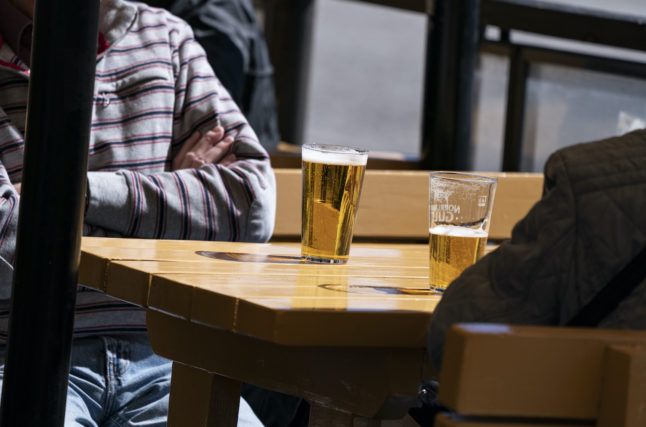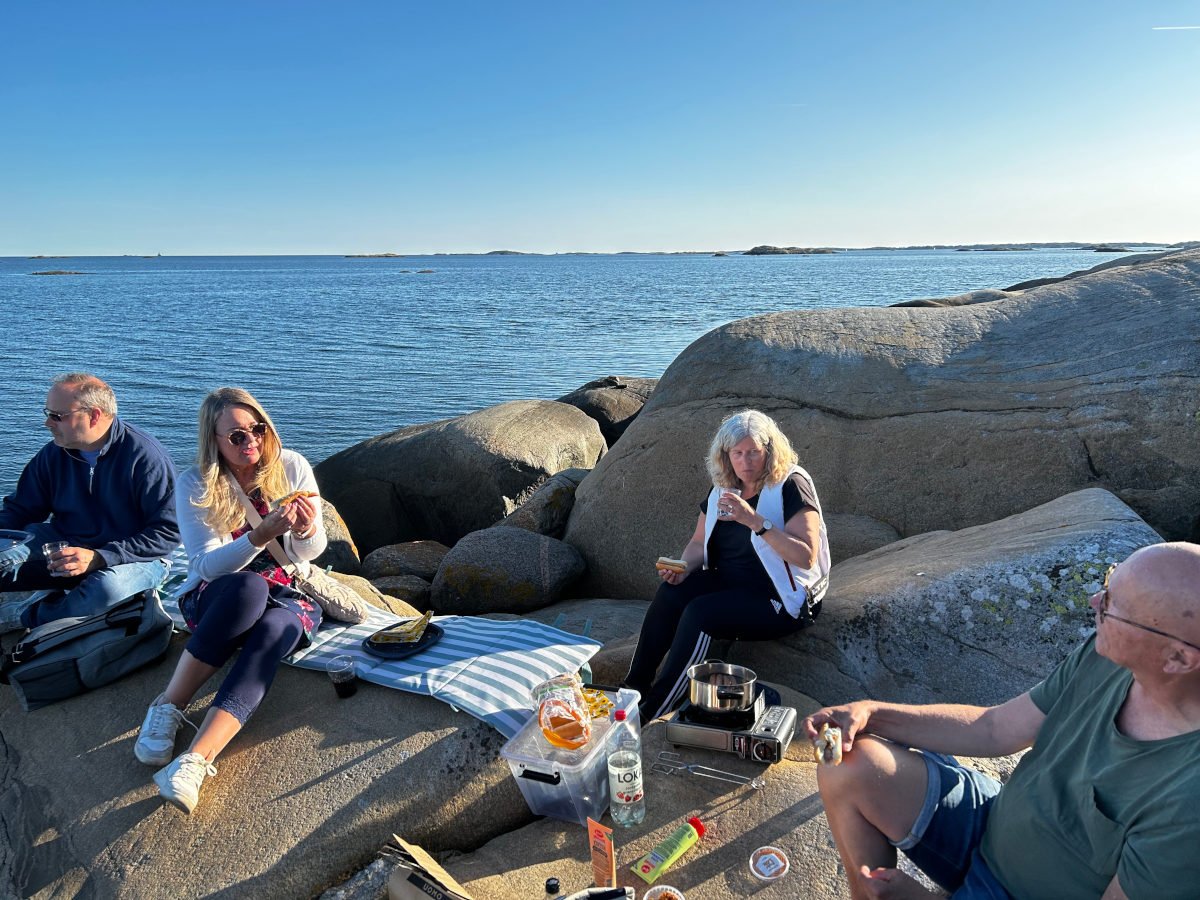Swedish has started polluting your native language
Have you started saying ‘oj!’ in your native language in situations where it doesn’t make sense?
Do you overuse the words ‘precisely’, ‘absolutely’ and ‘exactly’, saying them in English where you’d say ‘precis’, ‘absolut’ or ‘exact’ in Swedish? If you haven’t noticed this, your English speaking friends or family back home probably have, although they may be too polite to point it out to you.
If you’re a native English speaker, Swedish grammar has started rubbing off on you, and you find yourself in the dark as to where the adverb in a sentence is actually supposed to go.
Your definition of ‘nice weather’ has changed
In a similar vein, your definition of nice or warm weather has changed.
Previously, you wouldn’t have dreamed of eating outside or leaving your jacket at home in 15 degree weather, but Swedish outdoor serving areas with their patio heaters and warm blankets have changed this, and you find yourself suggesting eating lunch in the garden or on the balcony at temperatures you never would have ventured outside in in your old life.
You get overwhelmed by even quite minor crowds
Living in Sweden – a geographically large country with a relatively small population compared to many other countries – your definition of a crowd has also changed.
You consigned yourself to never getting a seat on public transport in your home country a long time ago, but you’re genuinely shocked when there’s standing room only on the Stockholm metro, a Gothenburg tram or a bus in Malmö.
This was only further emphasised by pandemic-related avoidance of crowds, which means that when you’re faced with an actual crowded situation, you still need a couple of minutes to get used to the fact there are so many people in such close proximity.
You bask in the sun in spring like a seal
Around March or April, when the sun starts to return to Sweden after months of dark, grey weather, you’re likely to see Swedes sitting on park benches with their eyes closed and the sun warming their faces.
If you come from a country with a lot of sun, you will most likely think this is odd, but I’m sure many of you who have been here long enough will appreciate how nice it is to feel the sun on your face in spring after a winter which has left you extremely vitamin D-deficient.
Your definition of ‘cheap’ has changed
Similarly, you’ll be shocked by the low prices in many (although admittedly not all) countries, particularly in restaurants.
You do the mental arithmetic in your head and are shocked when you discover that you can buy an entire meal in a nice restaurant – with a drink – for under 150 kronor.
Were things always this cheap, or are you just used to Sweden’s high prices?
You genuinely enjoy knäckebröd
Despite previously dismissing eating Swedish crispbread as a culinary experience similar to eating cardboard, you now find yourself craving it when you’re not in Sweden.
Plus points for Swedishness if you find yourself searching in vain for a wooden butter knife and resigning yourself to using a metal one, like some sort of uncultured swine.
You almost break up with your partner when forced to share a duvet
Although this is common in some other countries, Swedes expect two adults sharing a double bed to each use their own duvet. Somehow, this has not become common practice worldwide, meaning you may be forced to share a duvet when spending the night in another country with your partner.
Your habit of using two duvets in Sweden means that you spend the entire night waking up every time your partner moves, and are considering never talking to them again when morning finally rolls around.
You proudly translate the names of IKEA products for your friends
A newfound pride in your adopted homeland means that you feel at home when you spot branches of IKEA or H&M abroad, and get excited whenever you see someone in your home country wearing Haglöfs or Fjällräven products.
Your friends at home get you to translate the names of products at IKEA, although their excitement is somewhat dampened when they discover that most of the names are really quite boring in Swedish.
You are shocked by the low quality of housing elsewhere
Swedish homes are unsurprisingly, considering the weather, very well insulated, and heating systems such as fjärrvärme mean that, at least in inner-city apartments, your heating usually just works.
Not all countries can boast such a good quality housing stock, meaning you might need to get used to the lower standard (and the lower indoor temperature) in your home country (not singling any countries out here, but the author of this article does happen to be British)…
You do a double-take when you see alcohol for sale in supermarkets
Sweden’s relatively strict alcohol laws mean, if you drink alcohol, that you’re used to planning ahead for any events, such as dinner parties or birthday celebrations, where you might be expected to bring booze with you.
Visiting friends abroad, you might have to remind yourself that yes, you can just pick up a (chilled!) bottle of white wine or a six-pack from the supermarket on the way to a party on a Saturday evening, instead of having to plan ahead to buy and chill it in advance.







 Please whitelist us to continue reading.
Please whitelist us to continue reading.
Uh, I don’t think I’ll *ever* get used to how warm Swedish homes are in the winter. As far as I’m concerned, 21c is too warm for anything more than a t-shirt and shorts! I much prefer to keep my home around 16-17c 😀
Don’t worry, Garry, you’ll get used to it eventually. ;-))…. or just wear shorts and a T-shirt at home all the time. Bet you miss separate hot and cold taps in the sink as well.